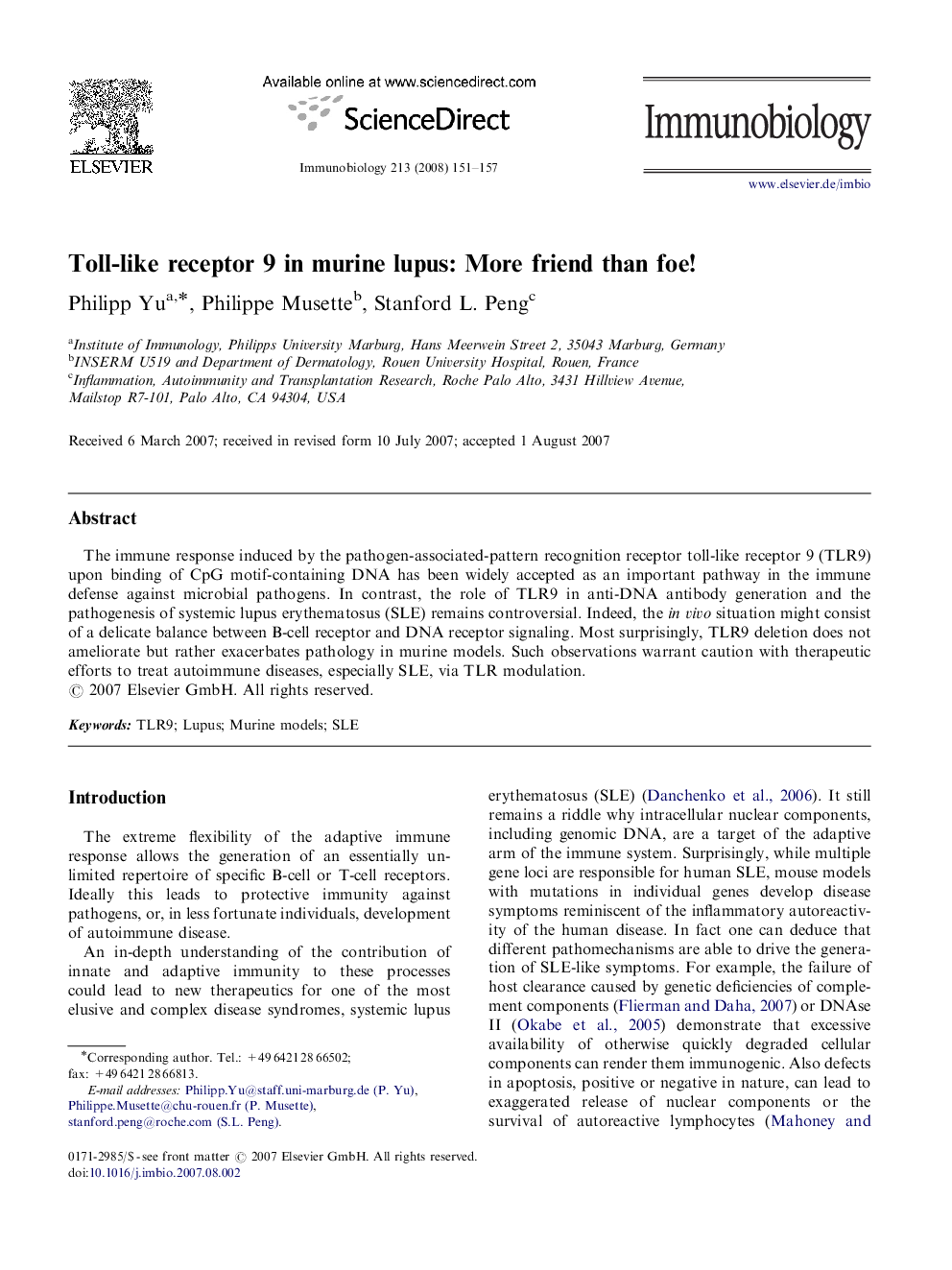| Article ID | Journal | Published Year | Pages | File Type |
|---|---|---|---|---|
| 2183591 | Immunobiology | 2008 | 7 Pages |
Abstract
The immune response induced by the pathogen-associated-pattern recognition receptor toll-like receptor 9 (TLR9) upon binding of CpG motif-containing DNA has been widely accepted as an important pathway in the immune defense against microbial pathogens. In contrast, the role of TLR9 in anti-DNA antibody generation and the pathogenesis of systemic lupus erythematosus (SLE) remains controversial. Indeed, the in vivo situation might consist of a delicate balance between B-cell receptor and DNA receptor signaling. Most surprisingly, TLR9 deletion does not ameliorate but rather exacerbates pathology in murine models. Such observations warrant caution with therapeutic efforts to treat autoimmune diseases, especially SLE, via TLR modulation.
Keywords
Related Topics
Life Sciences
Biochemistry, Genetics and Molecular Biology
Cell Biology
Authors
Philipp Yu, Philippe Musette, Stanford L. Peng,
